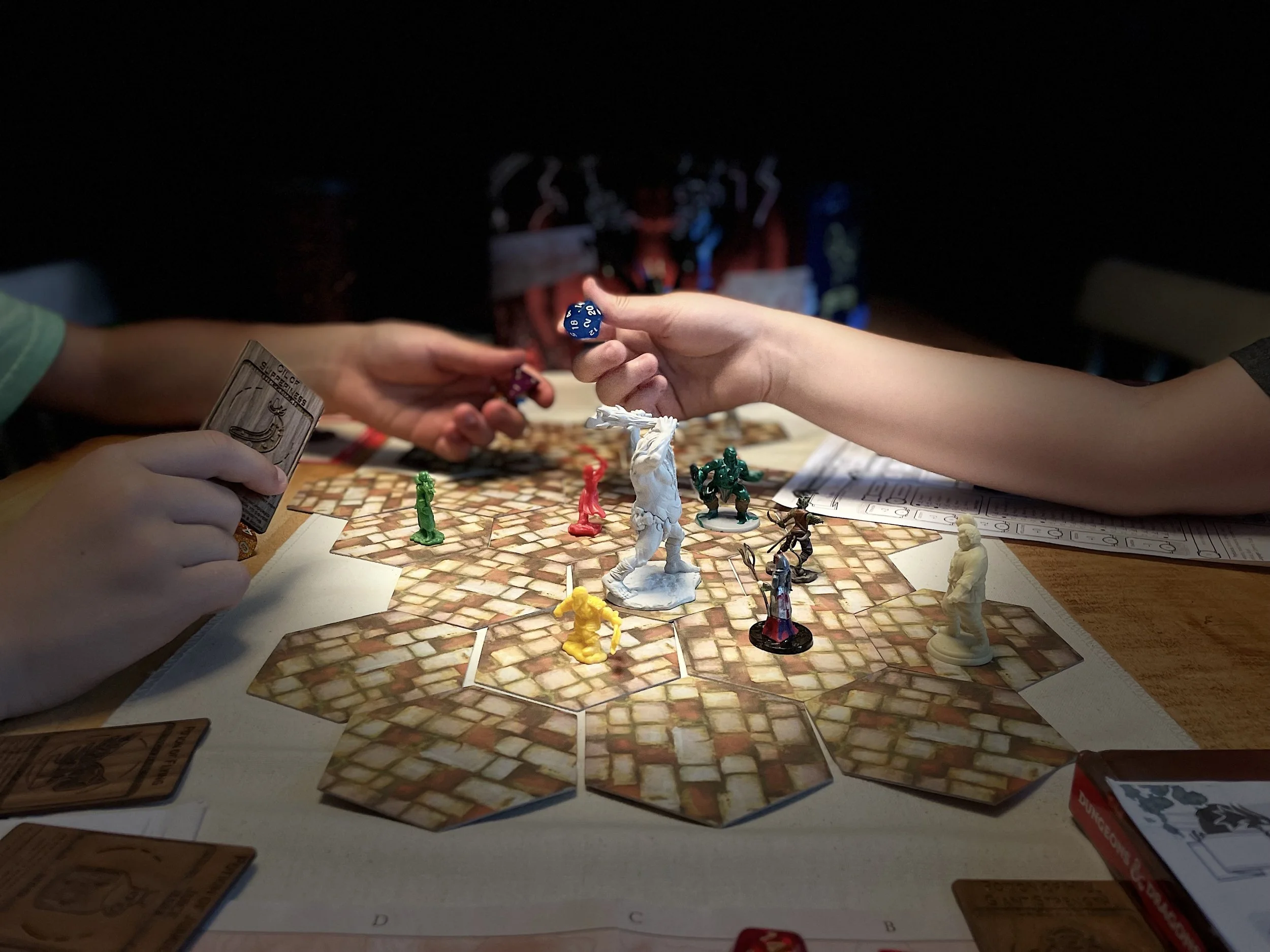The Magic of Dungeons & Dragons in Therapy
How role-playing games help kids and teens grow, connect, and thrive.
At Wellness Quest Counseling, we use creative tools to help young people build confidence, connection, and self-understanding, and few tools are as effective (or as fun) as Dungeons & Dragons.
Dungeons and Dragons or D&D refers to the genre of tabletop gaming where players create extraordinary characters and tell stories together in a fantasy setting. Players take actions for their character and depending on how risky the action is must roll dice to determine how successful they were.
D&D might look like a game about dragons and dice, but underneath the fantasy, it’s a space for teamwork, imagination, and emotional growth. Whether kids are shy, anxious, struggling socially, or just need a positive outlet, this kind of collaborative storytelling offers countless opportunities to learn and heal through play.
Here are some of the many therapeutic benefits of D&D for children, teens, and young adults.
1. A Safe Space for Play and Connection
Play is how children learn and grow. D&D provides a safe, structured way to do just that. Players laugh, create, and solve problems together, forming friendships and memories along the way. For many, it’s the first time they feel part of a team where everyone belongs.
2. Practicing Identity and Self-Expression
Every player creates a character: brave, clever, magical, or mischievous. Through that character, kids can explore different sides of themselves - confidence, kindness, leadership, creativity - and see what it feels like to “try on” new strengths in a supportive environment.
3. Building Social Skills
Teamwork is built right into the game. Players must listen, cooperate, take turns, and communicate clearly to succeed. It’s a fun, low-pressure way to practice the same social and communication skills needed in everyday life.
4. Learning Perspective and Empathy
In D&D, you see the world through another’s eyes - whether that’s a wise elf, a courageous knight, or a misunderstood monster. This helps players develop empathy and learn to understand feelings and motivations different from their own.
5. Managing Frustration and Setbacks
The dice don’t always roll in your favor! When plans go wrong, players learn to adapt, regulate emotions, and keep going. Over time, this builds emotional resilience: the ability to handle disappointment and bounce back from challenges.
6. Developing Confidence and Leadership
Through creative problem-solving and teamwork, players see that their ideas matter. They get to make choices, take risks, and lead their party toward victory. These moments of success help build confidence that extends far beyond the game table.
7. Strengthening Focus and Critical Thinking
Every session requires planning, strategy, and quick decision-making. Players engage executive-functioning skills like organization, memory, and flexible thinking, all while having fun and staying engaged.
8. Encouraging Emotional Expression
Role-playing invites players to explore emotions safely: excitement, fear, sadness, pride. By expressing those feelings through their characters, players gain comfort with emotional expression and empathy for others’ experiences.
9. Fostering Creativity and Imagination
There’s no script in D&D - players shape the story together. They dream up solutions, invent backstories, and collaborate to solve mysteries. That creative spark can carry into writing, art, or simply seeing real-world challenges in new ways.
10. Promoting a Sense of Belonging
For many young people, especially those who struggle socially, D&D provides a sense of community and acceptance. Every player contributes something unique, and every voice matters - that’s what makes the adventure possible.
Why It Works at Wellness Quest Counseling
Our therapeutically applied D&D groups are led by mental health professionals who understand how to turn play into progress. Sessions are fun and engaging, but also grounded in goals like building confidence, managing emotions, improving communication, and practicing social skills.
Each adventure becomes an opportunity to practice and learn underdeveloped or underused skills that are essential to the real-life quests we must face everyday. All within the safety and guidance of licensed mental health professionals.
Interested in joining a group?
Our next D&D therapy groups begin soon for kids, teens and young adults of all experience levels - no gaming background required!
Click here to learn more and register for upcoming groups!

